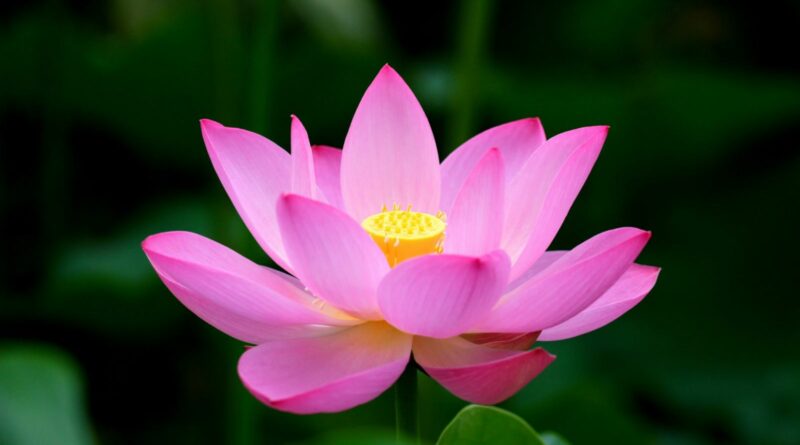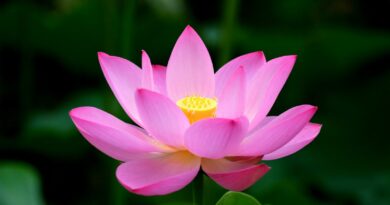TAKING THE LONG VIEW
Taking the Long View
August 4, 1957
Most of us tend to concern ourselves only with short, small, and narrow things. For instance, we think that there isn’t much to human life—we’re born and then we die—so we pay attention only to our stomachs and appetites. There’s hardly anyone who thinks further than that, who thinks out past death. This is why we’re short-sighted and don’t think of developing any goodness or virtues within ourselves, because we don’t see the truth and the extremely important benefits we’ll gain from these things in the future.
Actually, the affairs of each person are really long and drawn out, and not at all short. If they were short, we’d all know where we came from and how we got where we are. The same would hold true for the future: If our affairs were really a short story, we’d know where we’re going and what we’ll be after death.
But the truth of the matter is that almost no one knows these things about themselves. The only ones who do know are those whose minds are strong in goodness and virtue, and who have developed purity to the point where they gain the intuitive understanding that enables them to see where they’ve come from and where they’re going. These people have the inner eye, which is why they are able to see things past and future. Sometimes they can see not only their own, but also other people’s affairs. This is what makes them realize the hardships and difficulties suffered by human beings and other living beings born into this world. They see the cycle of birth, aging, illness, and death. They see their past lives, both good and bad, and this makes them feel a sense of dismay and dispassion, disenchanted with the idea of ever being born again. As a result, they try to develop their goodness and virtues even further so that they can reduce the number of times they’ll have to be reborn. For example, Stream-winners—those who have entered the stream to Liberation (nibbana)—will be reborn at most only seven more times and then will never have to be reborn again. Once-returners will be reborn in the human world only once more, while Non-returners will be reborn in the Brahma worlds and gain Liberation there.
As for Stream-winners, even though they have to be reborn, they’re reborn in secure places. They aren’t reborn in states of deprivation, such as the realms of hungry shades, angry demons, or common animals. They’re reborn as human beings, but as special human beings, not like the rest of us. How are they special? They have few defilements in their hearts, not thick defilements like ordinary people. They have a built-in sense of conscience and scrupulousness. Even though they may do wrong from time to time, they see the damage it does and feel a sense of shame, so that they won’t want their various defilements to lead them into doing wrong ever again.
People disenchanted with rebirth make an extra effort to build up their virtues so that they won’t have to come back and be reborn. If you want to cut down the number of times you’ll take rebirth, you should steadily increase your inner quality and worth. In other words, make your heart clean and bright with generosity, moral virtue, and meditation. Keep your thoughts, words, and deeds at equilibrium, secluded from evil both inside and out. If you have no vices in word and deed, that’s called being secluded from outside evil. If your mind is firmly centered in concentration and free from obstructing distractions, that’s called being secluded from inside evil. This way you can be at peace and at ease both within and without. As the Buddha said, ‘Happy is the person content in seclusion.’
When this kind of seclusion arises in the mind, all sorts of worthwhile qualities will come flowing in without stop. The heart will keep growing higher and higher, until it no longer wants anything at all. If you used to eat a lot, you won’t want to eat a lot. If you used to eat in moderation, there’ll be times when you won’t want to eat at all. If you used to talk a lot, you won’t want to talk a lot. If you used to sleep a lot, you’ll want to sleep only a little. However you live, the heart will be entirely happy, with no more danger to fear from anyone. This is how you cut down the number of times you’ll take rebirth.
* * *
If you see any areas in which you’re still lacking in inner worth, you should try to fill in the lack right away. Be steady in your practice of meditation and make your mind clear, free from the distractions that will drag it down into the dirt. Dirt is where animals live—pigs, dogs, ducks, chickens, and cows. It’s no place for human beings. If you’re really a human being, you have to like living in clean places, free from danger and germs. This is why the Buddha praised seclusion as the wellspring of happiness. So try to find a secluded spot for yourself to stay within the mind, secluded from hindering distractions. Make your mind as bright as a jewel, and don’t let temptation come along and try to trade garbage for the good things you’ve got. You have to be mindful at all times, so don’t let yourself be absent-minded or forgetful.
* * *
If your mind doesn’t stay with your body in the present, all sorts of evil things—all sorts of distractions—will come flowing in to overwhelm it, making it fall away from its inner worth, just as a vacant house is sure to become a nest of spiders, termites, and all sorts of animals. If you keep your mind firmly with the body in the present, you’ll be safe. Like a person on a big ship in the middle of a smooth sea free from wind and waves: Everywhere you look is clear and wide open. You can see far. Your eyes are quiet with regard to sights, your ears quiet with regard to sounds, and so on with your other senses. Your mind is quiet with regard to thoughts of sensuality, ill will, and harm. The mind is in a state of seclusion, calm and at peace. This is where we’ll let go of our sense of ‘me’ and ‘mine,’ and reach the further shore, free from constraints and bonds.




